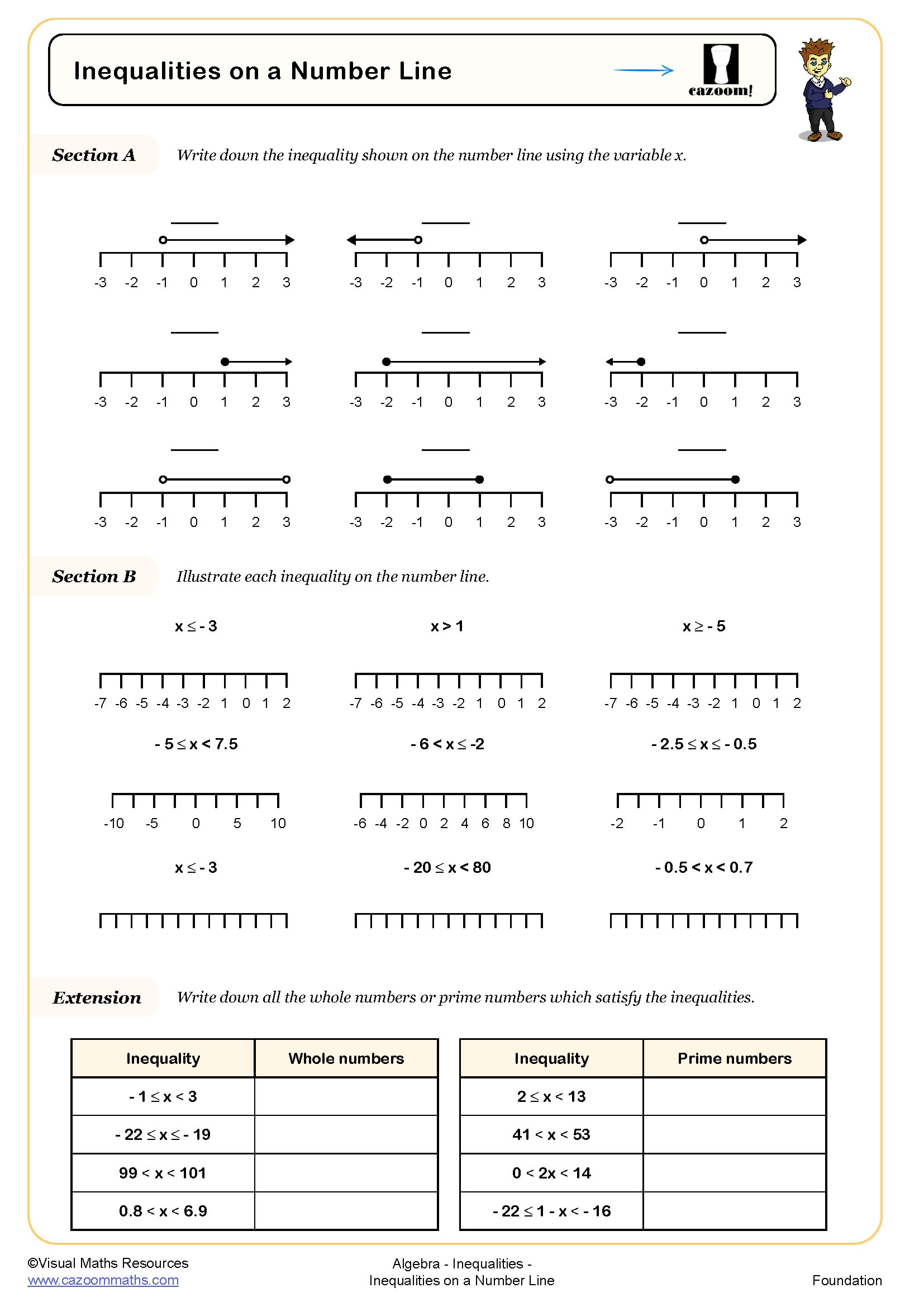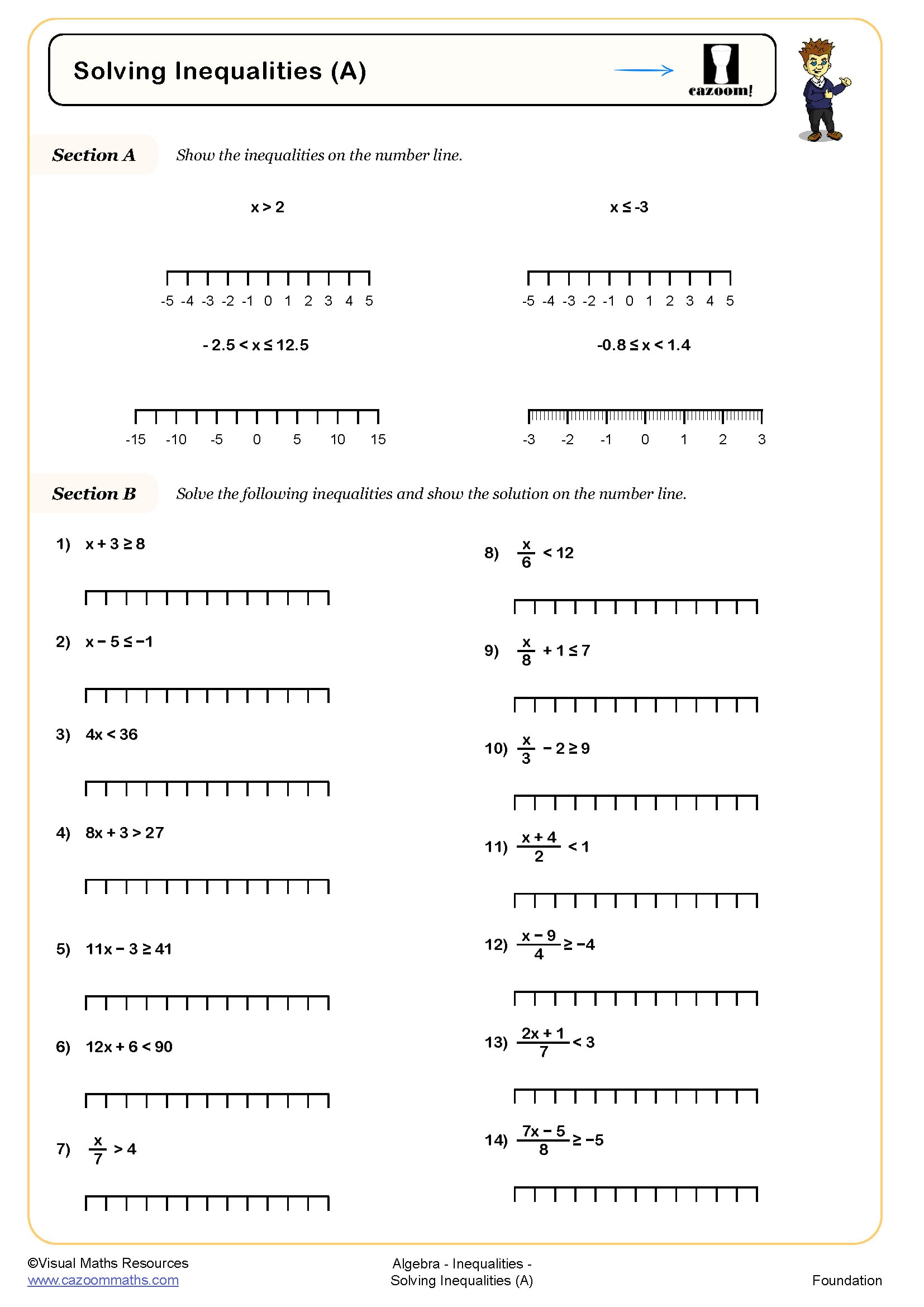Year 7 Inequalities Worksheets
All worksheets are created by the team of experienced teachers at Cazoom Maths.
Solving Inequalities Worksheet Collection with Detailed Solutions
Our Cazoom Maths expert team has observed that advanced algebra skills can be confusing for your young students as they transition from KS2 to KS3. However, without learning these basic algebra equations properly, your secondary school students will face difficulties. To make this learning process smooth and convenient, we have created our worksheets in ready-to-use, printable PDF format. Each of these worksheets includes separate answer sheets to facilitate an easy checking process. Download our maths activities right now to provide the extra help your young learners need!
Essential Skills Covered in Our Year 7 Inequalities Practice Materials
We have packed quite a lot into these worksheets! Students start with basic inequality symbols and progress to solving complex inequality equations. The number line representations are particularly popular with our Year 7 classes. We cover one-step inequalities, multi-step problems, and those tricky questions involving negative coefficients that always catch students out.
Why Year 7 Students Need Regular Inequalities Worksheet Practice
It is proven that your secondary students who practice regularly with quality worksheets perform significantly better in assessments. The repetitive nature helps them internalise the rules about flipping inequality signs. These skills form the foundation for GCSE algebra success later on.
• Build confidence with inequality symbols and notation
• Master the crucial skill of flipping signs when dividing by negatives
• Develop systematic approaches to multi-step problems
• Strengthen number line interpretation skills
• Prepare effectively for end-of-topic assessments
Real-World Situations Where Students Apply Inequality Skills
Inequalities appear constantly in science calculations, particularly when working with ranges and limits. Geography lessons use them for population studies and climate data. Even PE involves inequalities when calculating training zones and performance targets.
• Science experiments with temperature and pressure ranges
• Geography, population density, and rainfall measurements
• Business studies profit and loss calculations
• Design technology material strength specifications
• PE heart rate zones and fitness targets
• Economics, budget constraints, and market analysis

